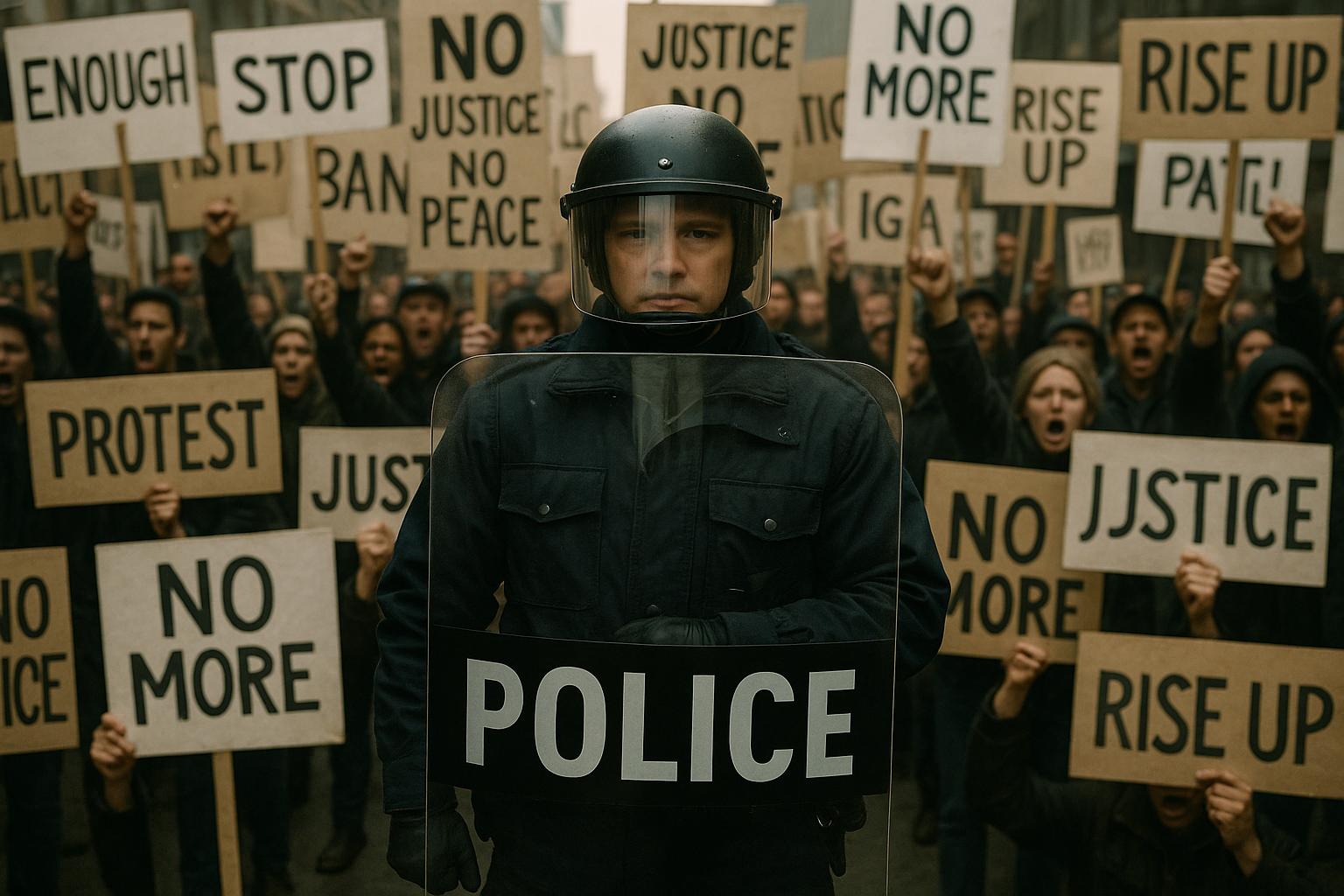Forty individuals were arrested amid violent clashes during a pro-Palestine demonstration in Westminster, London, as tensions boiled over near the heart of the capital. The Metropolitan Police disclosed that six of those detained faced charges specifically for assaults on officers, while the majority were taken into custody for breaching conditions imposed under the Public Order Act. The protest, organised by the Global Movement for Gaza UK, had specific restrictions placed on it designed to keep key roads open and minimise disruption, but a significant portion of demonstrators refused to comply, leading to confrontations with the police.
The police force described the scene as one of considerable disorder, with officers intervening after activists ignored restrictions, resulting in physical altercations. Videos circulating widely on social media depicted a tense environment, featuring multiple police vans and numerous officers engaged in enforcing the conditions amid protesters some of whom shouted inflammatory slogans such as "death to the IDF." The protest eventually dispersed with Whitehall returning to normalcy, although police maintained a presence to manage any further incidents.
This episode echoes prior protests in London centred on the Israeli-Palestinian conflict that have similarly seen escalations of violence and arrests. For instance, a rally organised by the Palestine Solidarity Campaign earlier in the year drew an unexpectedly large crowd of between 8,000 and 10,000 people, resulting in three police officers injured—including one struck in the face with a bottle—and an equal number of arrests. These events have repeatedly involved clashes when protests overstay their permitted durations or breach public order regulations, leading police to disperse crowds forcibly.
The atmosphere around these protests frequently sparks intense debate. Last year saw a Metropolitan Police officer come under investigation after being filmed chanting "free Palestine” while on duty, prompting scrutiny over the balance police must maintain between political neutrality and personal expression. Meanwhile, counter-protests too have drawn attention—one notable incident involved the arrest and subsequent release of a man holding a "Hamas are terrorists" placard during a pro-Palestine march, highlighting the challenges of managing freedom of expression within highly charged demonstrations.
In a related context concerning the legal repercussions of these protests, individuals involved in assaults on police officers have faced prison sentences, reflecting the serious nature with which authorities treat violence against emergency workers. Home Secretary Suella Braverman has previously condemned pro-Palestine marches she described as "hate marches," asserting that calls for the elimination of the Israeli state will not be tolerated in the UK.
The cycle of protests, clashes, arrests, and political controversy underscores the enduring sensitivity and volatility surrounding the Israeli-Palestinian conflict as expressed on the streets of London. The police continue to face the difficult task of balancing the right to protest with the maintenance of public order and safety in an environment where emotions and political passions run high.
📌 Reference Map:
- Paragraph 1 – [1]
- Paragraph 2 – [1]
- Paragraph 3 – [2], [3]
- Paragraph 4 – [5], [6]
- Paragraph 5 – [4]
- Paragraph 6 – [1], [2], [4]
Source: Noah Wire Services
